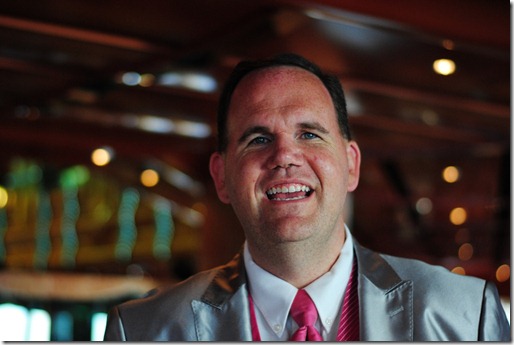Here at Tasting Britain, we’re of the opinion that Jimmy Moore, perhaps better known as the ‘Livin Low Carb Guy’ is a very nice chap (listen to one of his podcasts and see if you can resist the all powerful fuzziness of that lazy Southern drawl). But Jimmy’s more than that – he’s also a pretty smart guy – and that means he’s worth a profile…
So, what’s the subject? Your health – and where the food you eat fits into it.
So, anyone who thinks that fat, and especially saturated fat (*obligatory gasp*) is the main cause of the health crisis (diabetes, coronary heart disease et.c) facing many of us today might want to listen to Jimmy. He has a different opinion and he’s also bringing a whole load of (mounting?) scientific evidence to back it up.
And yes, it probably doesn’t surprise you to find out that Jimmy is just one of many people attacking the uh…’conventional wisdom’ on fat. This is the High Fat, Low Carb movement – which advocates exactly what it’s name suggests. Jimmy is truly one of the most vocal of it’s figureheads, and is possibly one of the best at delivering the info on what he believes is really making us sick, fat and dead…
So, why not lend us your ears (or should that be your eyes?) for 5 minutes or so and see what all the fuss is about…?
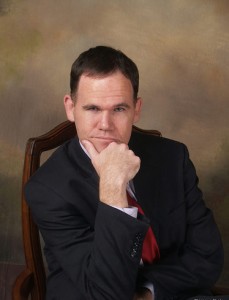
Name: Jimmy Moore
Role: Author, Podcaster, Nutritional Advocate, Friendly Guy
Birthplace: Jackson, Tennessee
Current Affiliation: Livin’ La Vida Low Carb
Twitter: @livinlowcarbman
Site: http://www.livinlavidalowcarb.com/
Fun fact: I got to be in a Hollywood movie with George Clooney. I was an extra in the film “Leatherheads” in 2008 and played the role of the doorman to a hotel. About 15 minutes into the movie, Clooney drives up on an old-timey motorcycle, parks his car in front of the hotel, and I got to give him a dirty look. We filmed that one 30-second scene for 9 hours doing at least 60-70 takes. My doorman character was less than five feet away from Clooney. WAY COOL experience.
Jack: What’s a ‘day in your life’ like? Could you give us an insight into the Livin’ La Vida Low Carb and the world of Jimmy Moore?
Jimmy: It’s actually quite menial and boring. I get up in the morning, go through the e-mails that came in overnight, research new information about health looking for news stories about it, sharing what I find on social media, interviewing people for my podcasts, exercising, getting some sunshine and fresh air, spending time with my wife Christine, blogging, doing videos, writing books…WHEW! I start when the sun comes up and the work never ends. But when you love what you’re doing, it doesn’t seem like work.

Could you give us a run down on HFLC (high fat, low carb) – a primer if you will, that explains what it is, and why you choose to do it?
Eating low-carb, high-fat is simple: consume real food sources of carbohydrates that are green leafy and non-starchy vegetables primarily, keep your protein consumption limited to fatty sources of meats, eggs, and cheeses, and eating healthy saturated and monounsaturated fats like butter, lard, coconut oil and more. The purpose of this is to control the blood sugar/insulin response to properly manage weight and health. I HAVE to do this to be optimally healthy since I consumed a horrible diet for the first 32 years of my life.
What kind of food do you eat on HFLC? Do you cook much? Could you let us know your personal staples and ‘no nos?’
Staples: Grassfed butter, grassfed beef, pastured eggs, coconut oil, sour cream, raw cheese, avocado, lard
No-nos: Sugars, grains, starches, soy, vegetable oils
What’s the craziest thing you’ve eaten, or cooked?
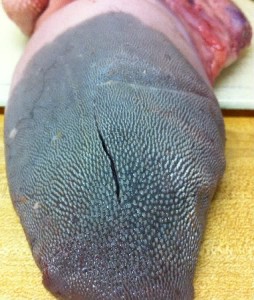
You’re a South Carolina man, right? What do people eat down there and what’s your favourite regional cuisine? What are your most and least favourite foods?
I live in Spartanburg, South Carolina and people here eat a load of carbage-filled foods. There’s a popular dish here called Shrimp & Grits, but I think that’s pretty disgusting. I don’t eat the cuisine of my home state, but there is a great Southern Paleo cookbook that I LOVE called Paleo Comfort Foods by Charles & Julie Mayfield.
What’s one food or dish that most people probably haven’t tried, but you’d recommend?
Escargot. I used to get freaked out about eating snails, but I had them on the Low-Carb Cruise one year and now I’m hooked. They’re cooked in butter and garlic and are so good!
You might be best known now for your n=1 experiments, that’s easier to do than a lot of people might think, right? How’d you get started?
I just did it. The thing about an n=1 isn’t about perfection in what you’re trying to do. You’re simply observing what happens to YOU when you are doing something you are testing. When I first started these experiments, it was just to watch my blood sugar to see what would happen when consuming various “low-carb” products. Of course, my investigation into the concept of nutritional ketosis is what has gotten all the attention in the past couple of years.
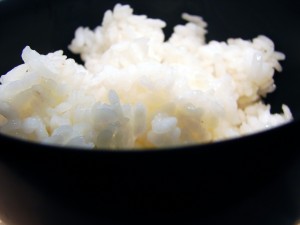
You are pretty meticulous on tracking the metrics (gotta be, to stay in nutritional ketosis, right?) What are your thoughts on counting calories?
It’s completely and utterly unnecessary. If you are consuming real, whole food sources, keep your carbohydrates to your personal tolerance level, maintain your protein intake to your individual threshold, and then eat fat to satiety, then your calories will be naturally regulated. Obsessing over calories is what has kept us mired in “diet” mentality for weight loss.
My buddy Jonathan Bailor is leading the way on this and has a great new book coming in December 2013 called The Calorie Myth that will fully address this topic in a reasoned and logical way. The ‘calories hypothesis’ needs to die a quick death if we’re ever going to move forward in helping people find and attain optimal health.
No doubt that some of our readers might be interested in trying this way of eating for themselves, could you give them some tips on how to either learn more, or get started?
- Definitely ramp up the real saturated and monounsaturated fats in your diet and here’s a great list of ones to start eating right away.
- My Swedish physician friend Dr. Andreas Eenfeldt has a great primer on getting started eating LCHF.
Since we’re a UK site, and since you’re the acknowledged expert, we wondered if you could you give us a run down of the LCHF scene in the UK and Europe? Some of our readers might not realise how popular your WOE is, hasn’t it really taken off in parts of Scandinavia…?
Definitely in Sweden, low-carb high-fat diets have become much more popular than virtually any other country in the world. People are fed up with being pushed low-fat diets and seeing their weight and health get worse that they embrace something that is FINALLY working for them. In the UK and across Europe, it’s not quite as popular—YET! I think the handwriting is on the wall and change is coming to Europe and America in the coming years.
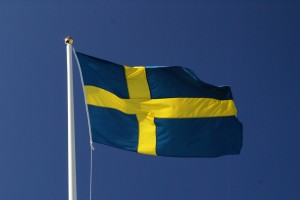
Like many things, the popularity of the low carb movement is kinda cyclic (thinking how popular Atkins was in 80s?) – where do you see it headed now?
It does run in cycles, but you’re fighting some deeply-held beliefs that people think are automatically true: fat will clog your arteries, you need carbs for energy, low-fat foods are healthier for you, whole grains are healthy to consume…on and on and on. Think about the way low-carb diet thinking has become slowly but surely embraced. People at least are aware of there being concerns about consuming carbohydrates now whereas they didn’t use to.
With the increased awareness of Paleo, I think this whole message is set for being embraced with open arms. The final line of defense in making this happen is to get people over their fear of fat. When that happens, then a low-carb and Paleo approach will be more apt to be accepted. It will take some time.
One thing you also experimented with was intermittent fasting (you did like 60+ hours, right?) Could you tell us a bit about that – why you did it and what it was like? I do it myself for like 18-24 hours a quite a few times a week and generally people don’t like or (want to) understand it at all!
Here’s how that 3-day fast was for me…
I did that one as an experiment to see how I’d do. But I regularly do 18-24 fasts like you for the incredible health and weight benefits it gives me. And it’s SUPER-EASY when you are eating enough fat in your diet without overloading your body with excessive protein and carbs.
Well timed carb refeeds – yay or nay?
For me, I can’t do this. But some people do well doing a John Kiefer-styled Carb Nite plan as we discussed in this podcast.
Inevitably some people are going to read this and flip out about the dietary recommendations that you and many other HFLC advocates make. Do you have an authoritative website or a conveniently condensed set of studies somewhere we could point them towards? (I’m thinking your new book could be a handy resource?)
Here are some of my favorite links explaining why low-carb high-fat is all that:
- http://tomnikkola.com/what-do-18-studies-say-about-low-carb-diets
- http://en.wikipedia.org/wiki/Medical_research_related_to_low-carbohydrate_diets
- http://www.dietdoctor.com/science
- http://www.nmsociety.org/low-carb-research.html
And speaking of that new book, could you tell us about Cholesterol Clarity?
After I lost 180 pounds eating a low-carb, high-fat diet in 2004, I fully expected my doctor to be happy about my health changes. But he was fixated on two numbers on my cholesterol test results—Total cholesterol and LDL cholesterol. And because these were by his definition considered “high,” he said I was at great risk for having a heart attack or heart disease unless I started eating a low-fat, high-carb diet and taking a statin drug…
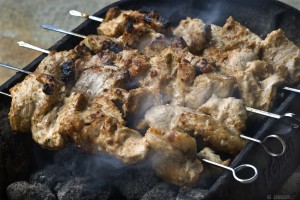
That never sat well with me and I wanted to provide an easy-to-understand resource for people to grasp why that kind of thinking is so incredibly flawed. I found 29 of the world’s top experts on cholesterol and added in a coauthor who is a respected researcher and practitioner in Dr. Eric Westman to put together a simply, yet scientifically-sound book on a subject that has people utterly confused. We sought to bring a bit of clarity to this issue at last.
My site, http://www.CholesterolClarity.com gives you a chance to meet these experts, read a sample chapter and learn more about “what the HDL” is going on with your cholesterol.
What’s your culinary philosophy, summed up in a sentence?
Eat real food to your carbohydrate tolerance level, protein threshold, and lots of saturated and monounsaturated fats to satiety.
What’s your ultimate aim and goal for your business and your career? If you could achieve anything with it, what would you pick? Shoot for the moon…
Education is the key. Once people are informed, then they can decide what’s best for them. I’m not about forcing anything on anyone. But I do think people must be armed with the facts and not spoon-fed propaganda when it comes to nutrition. The government and so-called health experts have done that to us with low-fat dogma for decades and where has it gotten us?—MORE obesity and chronic disease than ever before.
Give people the information and options about living healthy and let them decide what’s right for them. My ultimate goal? An international radio or television show that allows me to get the word out to the masses ever more than I do now.
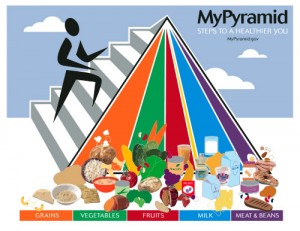
What was the biggest challenge that you’ve had to overcome and what did you learn from it?
Being 410 pounds and coming back from that before it was too late was arguably the biggest challenge I ever face. But I did it and I’m still doing it to this day. I learned that nutrition matters when before I just didn’t care. There are too many people who believe like I did which is why I stay so passionate about getting the word out to as many people as I can on a daily basis.
Who’s the person who’s most inspired you in your work – food/nutrition industry or otherwise? Is there anyone that you draw inspiration or strength from? Do you have any specific culinary influences?
My brother Kevin is the heart and soul of why I do what I do today. At the age of 32 he had a series of heart attacks in the span of one week that nearly killed him. After being in and out of hospitals for nearly a decade afterwards, he succumbed to the ravages of diabetes, heart disease and morbid obesity at the tender age of 41…
Since I’m 41 now, this all hits home to me. This is real life and there are far too many Kevins out there on a one-way ticket to the same fate. Keeping the memory of my only full-blooded brother alive to save the lives of others is what drives me to get up in the morning.
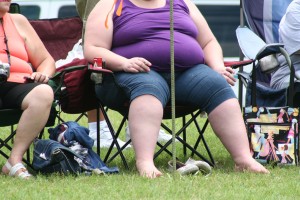
What do you enjoy most and least about what you do?
Enjoy most—helping others find their way to health.
Enjoy least—getting bogged down by insignificant stuff.
If you weren’t doing what you do now, what would you be doing instead?
I’m doing what I believe I was born to do. There isn’t anything else that would come close to the satisfaction I receive from what I am doing right now.
What advice would you give to aspiring food/nutrition entrepreneurs who’d want the kind of results that you’ve had?
Just get in there and do it. It’s hard work but the payoff is worth it.
Where next for you and all the stuff you do at LLVLC?
Keep sharing as I have been on my blogs and podcasts and writing books to spread this message even further. Anything I can do to help change the lives of others for the better, that’s what I’ll always be about.
And we always ask three customary ridiculous questions…
If you had to employ one of The Avengers to co produce your podcast, who would you pick, and why?
What’s The Avengers? [Ed: *facepalm*]
If you had to be transformed into any kind of household appliance, but retained your memories, ability to speak and personality, what would you pick?
Refrigerator for sure! I’d make all sorts of snide comments about the poor food choices and give ‘em an atta boy when they ate well. That would be fun!

If the army donated a functioning army tank to LLVLC, paid it’s fuel /ammo expenses and demanded you use it, for at least a day, what would you do with it?
Oh, I could think of a few good places that could use a bit of strong arm intimidation, but I’ll leave that to your imagination. 😀
